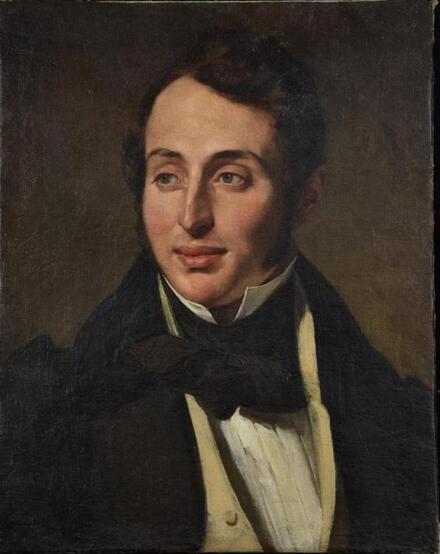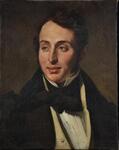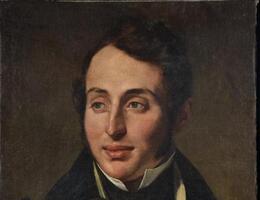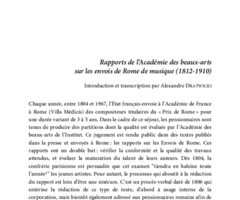
Guillaume ROSS-DESPRÉAUX
1802 - 1865
Composer
A native of Clermont-Ferrand, Despréaux entered the Paris Conservatoire on 7 October 1824 to study composition with Fétis and Berton. During the same period, and until 1828, he performed as an actor at the Gymnase Dramatique, a training theatre intended to complete the Conservatoire students’ dramatic and lyric education. When, in 1827, he entered the Prix de Rome competition, his cantata La Mort d’Orphée earned him a first Second Grand Prix, while the one composed by his fellow competitor, Berlioz, was judged unperformable by the members of the Institut. The following year, Despréaux won the competition with his cantata Herminie, againbeating Berlioz, who had to make do with a first Second Grand Prix. Despite this promising result, Despréaux did not carve out a career for himself. He is known to have composed a Requiem, in particular, during his stay at the Villa Medici. On his return to Paris, he tried his hand at opera, and his Le Souper du mari was performed at the Opéra-Comique (25 January 1833). It received a mixed reception: the music, deemed “as tentative as a first step”, showed “the seeds of an as yet undeveloped talent [which] promises to bear felicitous fruit” (Journal des artistes). The vaudeville La Dame d’honneur (1838) was greeted more enthusiastically by Berlioz: “The voices and instruments are used tastefully and with prudent economy in this work; the harmony is pure; the melodic forms are perhaps somewhat curtailed; the modulations are rare, but well justified.” If Fétis is to be believed, Despréaux composed many other works after these first attempts, but none of them was performed. Nothing is known about the composer’s later life.




